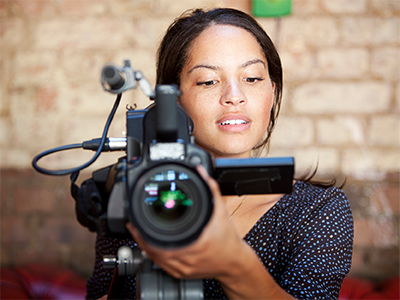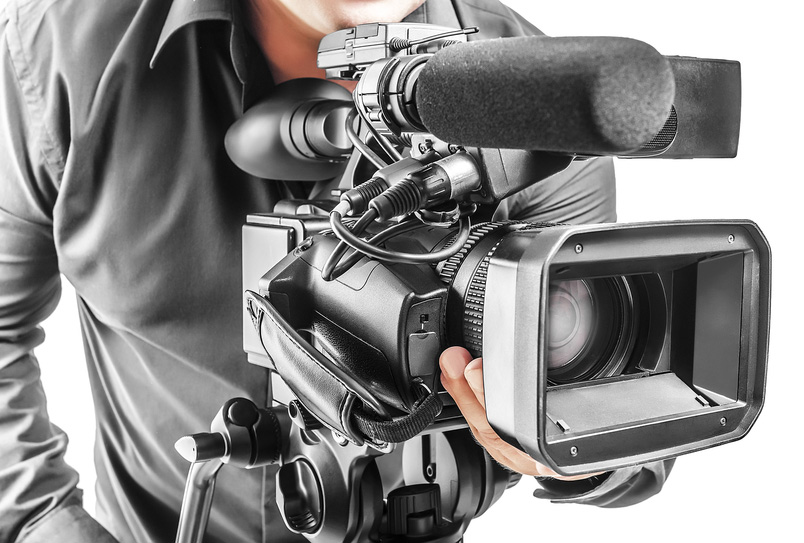The Duty of Lawful Videography in Depositions and Trials
Legal videography has actually arised as a necessary tool in both depositions and trials, giving a multifaceted strategy to recording witness testaments. By capturing not only the talked word however likewise the nuances of non-verbal interaction, this medium enhances the credibility of testimonies and protects vital evidence for future process (legal videography). As attorneys significantly identify its value, it prompts a much deeper assessment of how these aesthetic records can influence juror assumptions and trial outcomes. What effects might these advancements hold for the future of lawful method?

Relevance of Legal Videography
Legal videography plays a pivotal function in the documents and presentation of depositions and tests. This specific area combines technical abilities with legal knowledge to develop a trusted record of process that can considerably influence instance end results. The visual aspect of lawful videography boosts the understanding of witness statement, permitting jurors and courts to observe not only the spoken words however additionally the demeanor, emotions, and body movement of the witnesses.
Additionally, legal videography provides an objective account of occasions, minimizing the possibility for misconception that can occur with composed records alone. This aesthetic documents functions as a critical device throughout test presentations, assisting in a clearer and more persuasive story for both plaintiffs and defendants. Additionally, the ability to replay video clip sectors throughout court procedures allows legal teams to stress bottom lines, reinforcing their disagreements efficiently.
The significance of legal videography expands beyond the courtroom; it likewise plays an important duty in protecting proof for future recommendation, whether for appeals or more lawsuit. Its combination into the legal procedure is necessary for ensuring a fair and exact representation of the truths, inevitably contributing to the quest of justice.

Refine of Legal Videography
While capturing the nuances of depositions and tests, the procedure of lawful videography involves several crucial actions that make sure top quality, exact recordings. Originally, a professional lawful videographer prepares by assessing the case materials and comprehending the certain needs of the deposition or test. This prep work consists of acquainting themselves with the individuals and the context, which helps in recording essential information.
On the day of the recording, the videographer establishes up the necessary equipment, which usually includes high-definition video cameras, microphones, and proper lighting. Ensuring optimal angles and sound top quality is crucial, as it straight influences the efficiency of the recording. The videographer interacts with attorneys and participants to establish methods, guaranteeing that everyone understands the recording process.
During the deposition or trial, the videographer thoroughly tapes the procedures, paying attention to both verbal and non-verbal signs. This includes capturing the disposition and responses of witnesses and lawyers. After the session ends, the videographer might edit the video for clearness and compliance with lawful requirements, producing a last product that precisely shows the process for future reference Discover More and usage in lawful contexts.
Benefits in Depositions
The unification of videography in depositions provides numerous benefits that boost the general process of collecting evidence. One key benefit is the capacity to catch witness testaments with visual and auditory fidelity, giving a more accurate depiction of the witness's temperament, tone, and body language. This multidimensional approach enables lawyers and juries to assess credibility extra efficiently than typical written transcripts alone.
In addition, videographed depositions serve as a powerful device for description preserving testament. Ought to a witness ended up being not available for test, their recorded deposition can be played in court, making sure that their proof remains available and pertinent. This aspect substantially lowers the risk of losing critical information that might affect situation outcomes.

Finally, videography improves the overall professionalism of the deposition procedure, instilling confidence in clients concerning the thoroughness of their legal representation (legal videography). By leveraging technology, lawyers can dramatically enhance the efficiency of depositions
Effect on Trials
In many tests, the assimilation of videography can substantially influence the presentation of proof and the jury's understanding. Legal videography captures witness testaments and critical proof in a dynamic format, permitting jurors to engage with the product on numerous levels. This visual part improves the narration element of a trial, giving context and emotional resonance that standard text-based evidence might lack.
Furthermore, video clip recordings can act as powerful devices for impeachment during interrogation. When disparities occur in between a witness's previous statements and their court room testimony, video clip evidence gives an objective referral that can persuade jurors' point of views. This immediacy and clearness can strengthen the credibility of an event's narrative while at the same time undermining opposing arguments.

Future Trends in Legal Videography
As we look towards the future of legal videography, several emerging trends promise to improve its duty within the court room. One significant trend is the integration of synthetic knowledge (AI) in video clip evaluation and editing and enhancing. AI can simplify the procedure of determining essential moments in recorded depositions, permitting lawyers to swiftly access appropriate material, thus enhancing performance in instance preparation.
Additionally, the surge of digital truth (VIRTUAL REALITY) and enhanced reality (AR) technologies is anticipated to transform how jurors experience proof. legal videography. By submersing jurors in a simulated environment, these modern technologies can give an extra profound understanding of intricate situations, resulting in more enlightened deliberations
Furthermore, the raising need for remote depositions, sped up by the COVID-19 pandemic, will likely proceed. Lawful videographers will need to adjust to new software and systems to make sure top notch recordings in virtual setups.
Lastly, the expanding emphasis on data security will demand more stringent protocols for saving and sharing video proof. As the legal landscape advances, lawful videographers should stay abreast of these fads to preserve their relevance and efficiency in the judicial process.
Conclusion
In recap, lawful videography offers an essential function in the judicial procedure, improving the stability of depositions and trials. As technology proceeds to develop, lawful videography is positioned to more change its function within the legal landscape.
Comments on “Precision-Based Legal Videography for Detailed Evidence Filming.”